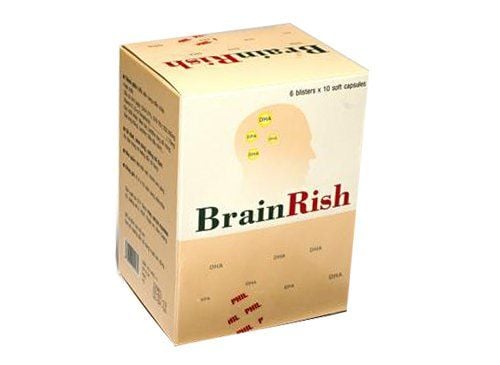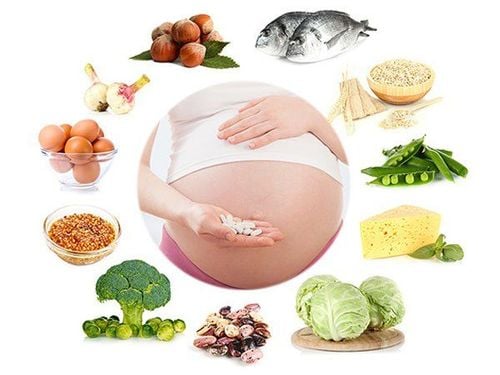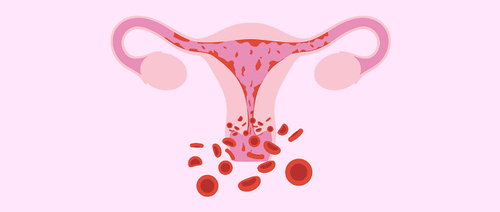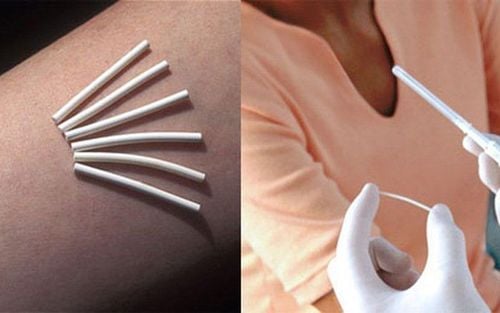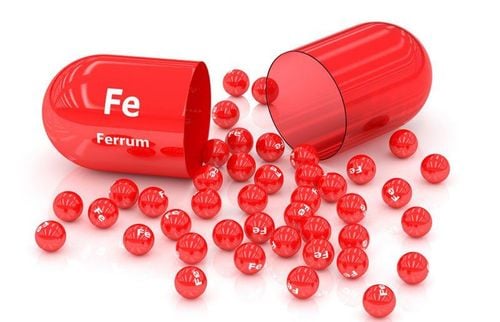This is an automatically translated article.
The article was written by Master, Doctor Nguyen Nhu Thu Truc - Obstetrician and Gynecologist - Department of Obstetrics and Gynecology - Vinmec Nha Trang International General Hospital.
During pregnancy, a lot of nutrients are needed. However, the daily diet sometimes does not provide all the necessary substances, especially micronutrients and vitamins.
1. What is the problem of anemia in pregnant women?
Like normal people, to determine whether or not anemia is required by testing the hemoglobin (Hb) level in the blood. Pregnant women are diagnosed with anemia when Hb is less than 11g/dl.
Although there are many causes of anemia, in pregnant women the cause of anemia is iron deficiency. This is the result of the body not being supplied with enough iron needed to make hemoglobin, a protein-based component responsible for the main function of red blood cells.
Women of reproductive age are inherently subject to a very high risk of anemia, during pregnancy, the need for iron increases many times to supply the fetus. At this time, anemia is further promoted. Therefore, women who are malnourished before pregnancy with poor nutrition and lack of proper rest will cause anemia even more.
2. How dangerous is anemia in pregnancy?
The role of hemoglobin is to carry oxygen with the blood stream to provide energy-generating metabolism in each cell, especially in important organs such as the brain and heart. Therefore, in normal people, anemia will make the body weak, tired, reduce the ability to exercise, poor concentration. If anemia progresses for a long time, it will increase the risk of malnutrition, cardiovascular diseases, and recurrent infections. However, anemia in pregnant women will adversely affect not only the mother but also the fetus.
For women, miscarriage is likely to happen in the first trimester or stillbirth or premature rupture of membranes, placental abruption, premature birth in the last trimester. At the same time, the pregnancy period also faces a high risk of gestational hypertension, pre-eclampsia - eclampsia, amniotic infection, premature rupture of membranes; the labor period is prone to prolonged labor, postpartum hemorrhage, postpartum infection. When the baby is born, the mother may have a lack of milk to feed the baby, easily exhausted...
For the fetus, chronic fetal distress due to malnutrition is common. Babies born with low birth weight, premature birth, jaundice after birth, prolonged nursing treatment time. Besides, children of mothers with anemia during pregnancy will have an increased risk of cardiovascular diseases than other children later in life.
Therefore, maintaining hemoglobin within physiological limits is very important in the normal population in general, pregnant women in particular. At the same time, a pregnancy with iron deficiency anemia would be considered a high-risk pregnancy.
3. How to treat pregnant women with iron deficiency anemia?
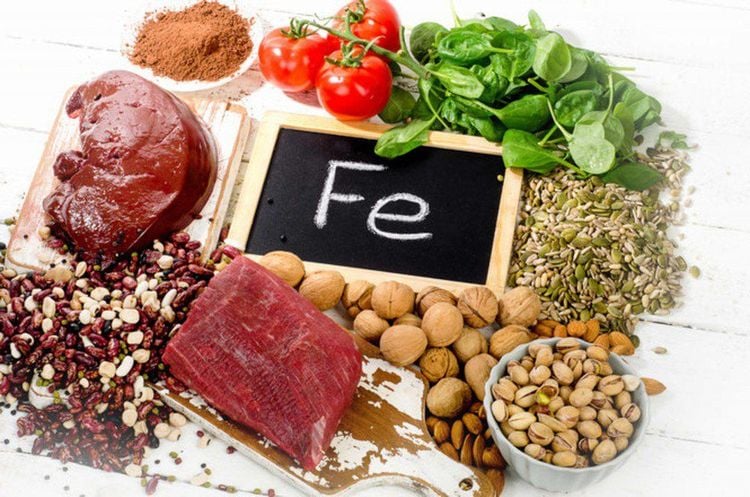
A complete diet is always the top concern of pregnant women in general, and pregnant women with anemia in particular. In particular, doctors always recommend that pregnant women should focus more on iron-rich food sources.
These are foods with deep red and dark green colors, such as red meat (beef, pork, lamb... the darker the meat, the more iron it contains), fatty fish, molluscs (clams). , snails, mussels...), liver, egg yolks, beans and other vegetables (watercress, broccoli, spinach, dandelion,...). Besides, the absorption of iron will become more effective if at the same time eat more vitamin C-rich fruits after meals, such as guava, oranges, tangerines, grapefruit, strawberries, tomatoes, kiwi, papaya, apricots. ri... Should eat whole fruit instead of squeezing to get water, because fruit also provides a large amount of fiber, making it easier to defecate, preventing constipation.
However, not all pregnant women have the ability to consume a full meal as recommended, due to nausea and vomiting during morning sickness in the first trimester or the last trimester of pregnancy. large, put pressure on the stomach. At this time, to control iron deficiency anemia in particular or micronutrient deficiency during pregnancy in general, in addition to the daily diet, pregnant women need to actively supplement with special multivitamins. exclusively for pregnant women.
4. How to use iron supplements properly?
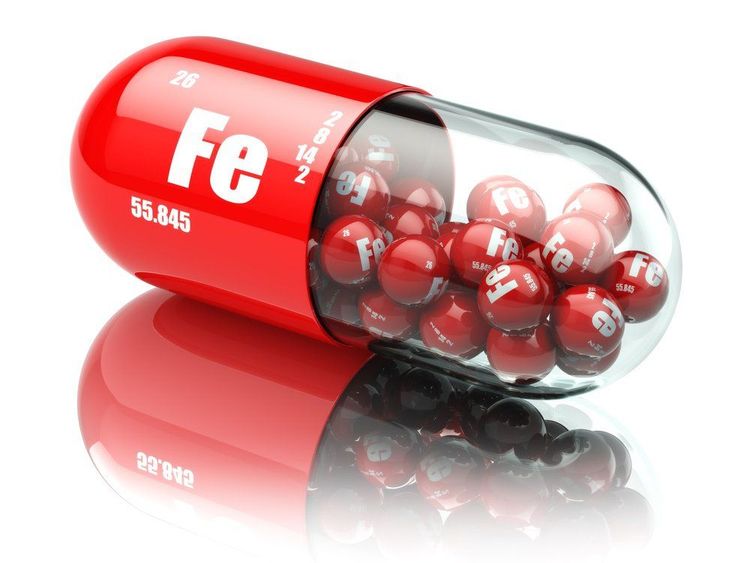
As soon as you know you are pregnant, you should start taking iron supplements every day. This also needs to be maintained regularly until at least a month after birth, because infants are still at risk of iron deficiency anemia when breast milk is not guaranteed.
In order for iron supplements and multivitamins to be fully absorbed and minimize unpleasant effects, pregnant women need to know how to use them correctly. Experts recommend that pregnant women take about 27 mg of iron per day during pregnancy. There are three types of iron supplements on the market today: ferrous gluconate, ferrous fumarate and ferrous sulfate. All three types can be used because they contain the right amount of elemental iron for one tablet a day.
However, ferrous gluconate and ferrous fumarate are preferred because these are organic iron, more easily absorbed than inorganic ferrous sulfate. On the other hand, in addition to iron supplements, pregnant women should choose a combination pill with folic acid to prevent neural tube defects in the fetus due to folic acid deficiency such as craniocervical defect, split spine...
Substance Iron is best absorbed when the stomach pH is low, which is when you wake up on an empty stomach in the early morning. This is the most ideal time of day to take iron pills. However, a few pregnant women are prone to nausea, vomiting, and stomach upset when taking iron on an empty stomach.
Instead, the doctor will recommend taking iron away from meals like before going to bed; at first, take it every other day, then take it daily or take iron with foods and fruits rich in vitamin C so that the absorption of iron is still guaranteed; Avoid drinking tea, coffee, carbonated soft drinks, milk and dairy products at the same time as taking iron tablets because it reduces iron absorption.
Besides, pregnant women also need to know that the unwanted effects of taking iron such as digestive disorders or constipation, diarrhea will quickly subside after a few days of patiently taking the drug; At the same time, eat more fruits and vegetables to increase fiber and ease bowel movements. Another small note is that when taking iron tablets, the stools may be black but not ominous, stopping taking will disappear.
In addition, besides iron supplements alone, on the market there are also a variety of drugs to help provide a full range of necessary vitamins and trace elements, including iron, suitable for each stage of pregnancy. period. At the same time, the meal should also give priority to iodized salt and sea fish to ensure the necessary amount of iodine for the brain development of the fetus; if iodine deficiency causes the child to be born with congenital hypothyroidism, mental retardation... foods and iron supplements, essential vitamins, one tablet a day is extremely convenient.
During pregnancy, if you have unusual symptoms, you should be examined and consulted with a specialist.
Please dial HOTLINE for more information or register for an appointment HERE. Download MyVinmec app to make appointments faster and to manage your bookings easily.





